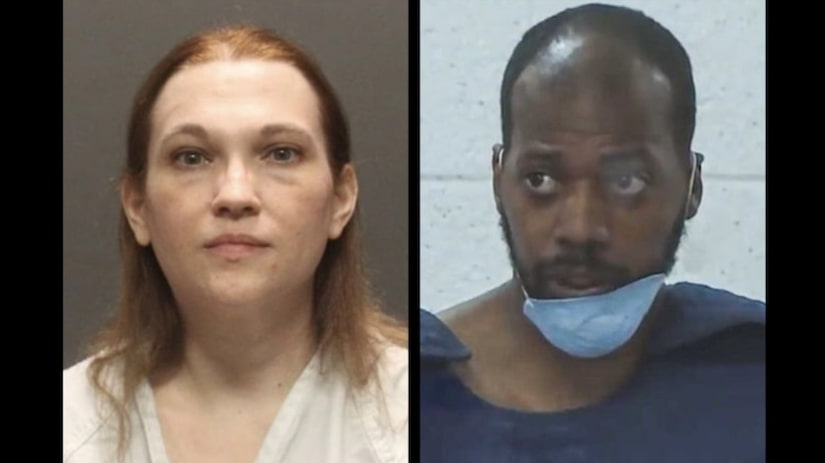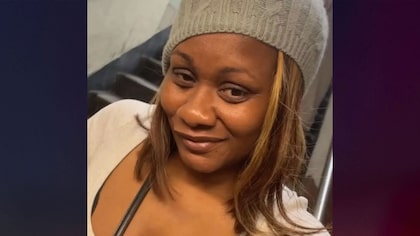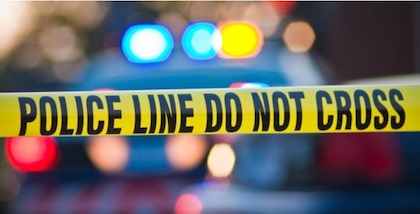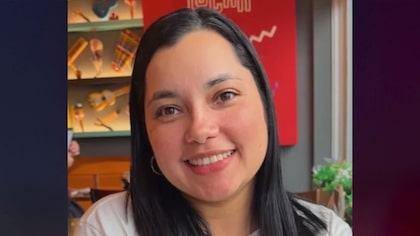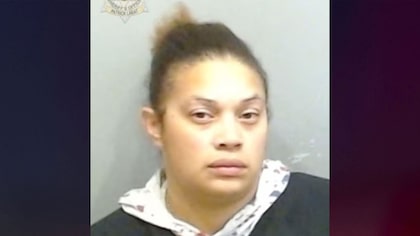Crime Watch Daily interviews accused New York 'pill-mill' doctor Michael Belfiore
12/18/2017 1:50 pm PST
UPDATE July 23, 2020:
L.I. Herald reports Michael Belfiore was denied a request for a new trial following his May 2018 conviction on 28 federal charges related to his prescribing of opioids.
Belfiore filed a motion to have the guilty verdict overturned, arguing that his attorney at the time misguided him in rejecting a plea deal. The deal -- a guilty plea to one distribution charge -- could have saved Belfiore jail time.
MORE: Convicted doctor from Merrick denied new trial - L.I. Herald
UPDATE May 23, 2018:
Newsday reports Dr. Michael Belfiore was convicted Wednesday on federal charges that he caused the overdose deaths of two Nassau County residents by illegally prescribing oxycodone for them, prosecutors said.
Belfiore had been on trial in U.S. District Court in Central Islip on two counts of illegal distribution of oxycodone causing death, and 26 counts of illegal distribution of oxycodone.
Belfiore faces a mandatory minimum sentence of 20 years and a maximum of life imprisonment, Newsday reports.
MORE:
Dec. 18, 2017:
A prominent New York doctor charged in the overdose deaths of two of his patients is sitting down only with Crime Watch Daily to tell his side of the story.
Was he doing his job, or was he feeding their addictions? Crime Watch Daily has the doctor's first in-depth TV interview.
Compassionate healer? Or reckless professional pusher with a license to kill?
He's New York osteopath Michael Belfiore. To the Drug Enforcement Agency, he's "Doctor Death," writing 5,000 prescriptions totaling 600,000 pain pills in just a little more than three years. He's now been caught in an undercover sting.
Michael Belfiore faces 26 counts of illegally prescribing dangerously addictive painkillers and causing the overdose deaths of two of his patients. One was a United States Marine.
Dr. Belfiore finds himself in the crosshairs of the government's forceful aim on the crushing opioid epidemic. But his lawyer calls this case a witch hunt.
If you find your health in the hands of osteopath Michael Belfiore, there's a good chance you'll walk out of his Merrick, New York office feeling that he's a dedicated man of integrity.
"I'm your family doctor. I'm the guy you come to whenever you need something," Michael Belfiore tells Crime Watch Daily. "I'm your first line of defense. And that's the way it's always been."
But Uncle Sam says Belfiore is far from a fixer. Instead, he's accused of being a destroyer of lives.
They started investigating you because there were a lot of complaints. There were complaints from pharmacists, they said, from several law enforcement officers, and from confidential informants. Complaints that you were illegally prescribing drugs to people who had addiction problems or were selling the drugs.
"First off, every prescription that I wrote was for a legitimate medical purpose," Dr. Michael Belfiore tells Crime Watch Daily.
When you see 600,000 oxycodone over the course of three and a half years, 5,000 'scripts,' it sound like a lot of drugs.
"At the time I was seeing 30 to 50 patients a day, somewhere in the neighborhood of 250-some-odd days out of the year. I see a lot of patients," said Belfiore.
Belfiore wound up on the government's radar in the midst of a crippling opioid crisis. New York is a growing burial ground for addicts.
"We have more overdose deaths than not only homicides, but homicides and traffic accidents combined," New York City's Special Narcotics Prosecutor Bridget Brennan tells Crime Watch Daily.
The government began cracking down on doctors, not just in New York, but across the country. In Los Angeles, a stunning conviction for Lisa Tseng, the first doctor in the nation to be convicted of murder in connection with the overdose deaths of three of her patients.
In New York, a community was shattered by the case of David Laffer, an addict so desperate for his fix that he shot up a pharmacy, executing four people. It so happens that David Laffer was being treated by Dr. Stan Li, who was sent to prison for up to 20 years in connection with the death of two other patients.
"He was the first doctor ever convicted in New York State of manslaughter for that kind of conduct," said Brennan.
Now Michael Belfiore is the next to try and make a convincing case before a New York jury. He's desperate to avoid a potential life behind bars for allegedly illegally prescribing and causing the deaths of electrician Edward Martin and former Marine John Ubaghs.
_Why did they die from the medication?
Belfiore: "They died from the medication because number one, they didn't take the medication as directed."
Belfiore insists he's not to blame.
Belfiore: "I'm just as guilty then of the liquor store selling that person that bottle of alcohol that got him into a DWI. I'm the gun dealer who handed over the gun to somebody who shot up the bank. How could I be responsible for people once they leave my office with a prescription?"
New York doctor Michael Belfiore has prescribed more than 600,000 pain pills in little more than a three-year span. He says all the prescriptions were justified. The feds think otherwise. And so do the families of at least two of his patients.
New York osteopath Dr. Michael Belfiore is under criminal investigation.
An federal agent played the role of an injured patient on the prowl for powerful painkillers, and recorded his interactions with the doctor.
But based on the footage, Belfiore hardly presents himself as a pill-pushing "Dr. Feelgood." The New York osteopath appears so sincere about the responsible use of pharmaceuticals, he wants a larger audience.
"I would love to do like a 'Dr. Phil' kind of thing where I just like sit in one chair and you sit in the other chair, because I have to show people that medicine, is not a one direct, one line kind of thing. It's a two-way transaction between people," Belfiore says in the undercover recording.
But prosecutors say it's not so much the words, but his actions, that were lethal, and made Belfiore poised for prison. Two patients died on his watch. Prosecutors say former Marine John Ubaghs is Belfiore's first casualty.
"He was really the epitome of just fearless. I have never seen him scared of anything in my life," said his friend Nick Lamagna.
But Ubaghs changed when he returned from deployment.
"Physically he seemed to lose his motivation a little bit to really work out as much, and to be as fired up, maybe a little bit more tired and sluggish," Lamagna tells Crime Watch Daily.
Ubaghs began seeing Dr. Belfiore, complaining of back, neck and spine pain. Belfiore prescribed increasing doses of oxycodone -- a highly addictive opioid -- as well as anxiety medication and muscle relaxers.
"He was coming in for months and months and months with pain that was well under control," Belfiore tells Crime Watch Daily.
What do you mean by "well under control?"
"He had no problem with the program that we made, he had no problem maintaining it," said Belfiore.
2,910 pills over the course of 17 months to John Ubaghs.
"Well, yes, because that was the program we instilled. And that was a program that was working very, very well with him," said Belfiore.
But John Ubaghs died of acute mixed drug intoxication, according to his autopsy. Prosecutors claim Belfiore ignored at least 40 red flags that Ubaghs may have been abusing the meds, including lab tests that showed the presence of THC and Xanax in his system -- neither of which were prescribed by Dr. Belfiore.
Why did you continue to give him the oxycodone if he had tested positive for another anti-anxiety?
"I also explained to them, it's, you know what I'm saying, it's unacceptable, it's something you shouldn't be doing," said Belfiore.
Another red flag: Ubaghs may have been sharing or selling his pills.
He said he was out of the medications early and even said he needed new prescriptions because his pills were stolen. Did that raise a red flag?
"Things happen. Things happen to patients. I've had patients who said that their dogs ate the medication, and so I says 'I don't believe you,' and they come in with the chewed bottle," said Belfiore.
And on two occasions, drug tests showed no sign of the oxycodone prescribed by Belfiore in Ubaghs's system.
Did it give you an inclination that maybe he was trying to sell the drugs or sharing them with other people?
"This is one of the things that grind my gears, because if a patient doesn't need the medication and doesn't take it, that's a great thing, you know what I'm saying? We're making success in our treatment," said Belfiore.
But Ubaghs' personal environment seemed ripe for pill-sharing. His sister Kristen and his girlfriend Melissa McConnell, both of whom worked in the medical field, have been criminally charged with forging prescriptions, including oxycodone and Xanax. Belfiore's attorney says that raises a big question: Where was Ubaghs getting the drugs that killed him?
"You have no control over what a patient is going to do, and you can't read tea leaves and you can't speculate on what patients are going to do after they leave your office," said defense attorney Thomas Liotti.
The government drew a direct connection between Belfiore's practices and Ubagh's death. But his attorney says there's no proof Ubaghs didn't die from overdosing on someone else's pills, or abusing the ones prescribed.
"They don't come in and say 'Hey doctor, you know what, you prescribed this medication for me. I'm gonna go home and I'm gonna drink the whole bottle and I'm gonna kill myself,'" said Liotti.
But prosecutors upped the ante, claiming Ubaghs didn't even have a medical need for the drugs Belfiore gave him in the first place.
Drug enforcers are putting the spotlight on doctors, claiming many of them are tempted by the lucrative benefits of pill-pushing.
"When this opioid pill craze started, you saw some greedy doctors who saw people that wanted these pills really badly and their greed overtook them," said James West, DEA Special Agent in Charge, New York Division.
"Patients don't walk in there wearing a T-shirt saying 'Hi, I'm an addict.' They don't carry cards that say 'I'm an addict,' they don't wear buttons that say 'I'm an addict,'" said Belfiore.
Well, one of Belfiore's patients did: self-admitted alcoholic Edward Martin, an electrician who showed legitimate evidence of nerve injury. But did the prescription fit the pain?
They're saying you gave him 248 pills over the course of two visits in a month and a half.
"Yes," said Belfiore.
Is that a lot?
"No, not at all," said Belfiore.
But Martin died shortly after receiving his second prescription from Belfiore. The government blames the doctor. The doctor blames the patient.
"He was found on his bed with chopped pills and he had snorted the medication. The instructions on the bottle did not say 'Chop up the pills and snort them,'" said Belfiore.
Edward Martin was found with several pill bottles nearby. Crime Watch Daily also discovered that Martin had been getting "oxy" from another doctor while seeing Belfiore, and that he had visited a heroin den in the past.
"They will do anything and everything to get their hands on drugs and narcotics," said attorney Tom Liotti.
But prosecutors say Belfiore's most egregious act was giving pain killers to an alcoholic.
You knew in the chart that he had a problem with alcohol. Why would you give him oxycodone, which has addictive problems, if you already know he has an addiction problem with another substance?
"I chose not to treat the alcohol problem," said Belfiore. "I chose to refer the alcohol problem to addiction specialists."
Two people overdosed.
"Correct."
Because they incorrectly used the medication.
"Correct."
They called you a drug-trafficker.
"Sure. They can call me whatever they want -- prove it," said Belfiore.
Every day there is a new headline about heroin addiction in the U.S. Many tell the same story: Their addictions all started with prescription painkillers.
The feds are now cracking down on the doctors prescribing those pills. Crime Watch Daily has undercover video of a sting that could send one New York doctor to prison for a very long time.
The feds say Dr. Michael Belfiore's medical practice is reckless -- even deadly. He's facing 26 counts and up to life in prison.
In the government's press release, they are essentially calling you a drug dealer.
"That's easy for them to say," said Dr. Michael Belfiore.
Easy to say, but how hard is it to prove a doctor is a killer pill-pusher in a white coat?
"Charges related to the death of someone, the prosecutor is going to have to prove that they acted very, very recklessly," said New York City's Special Narcotics Prosecutor Bridget Brennan.
Belfiore wrote 5,000 prescriptions for 600,000 pills in a little more than three years.
"I didn't write pain medications for people who had athlete's foot. I didn't write pain medications for people who are coming here complaining that they didn't like their hair color," said Belfiore. "I wrote prescriptions for pain, for people who are complaining of pain."
And two of those patients died on his watch.
Why did they die from the medication?
"They died from the medication because number one, they didn't take the medication as directed," said Belfiore.
Despite Belfiore's explanations, the government is still convinced he's crooked, and to further prove its case, an undercover agent visited Belfiore. The video was given to Crime Watch Daily by a source.
The agent fakes back pain. And on his first visit:
Dr. Belfiore: "What I'm going to do is I'm going to give you some oxycodone, I'm going to give you some muscle relaxers, I'm going to give you some anti-inflammatories, I'm going to give you something to sleep."
The agent scores. He pays cash and walks out with his prescriptions. In six visits, the agent laid out cold cash and got prescriptions for 540 pills.
Belfiore's attorney says the undercover videos are misleading.
"So he's counting out $275, why is he doing that? He's basically trying to show that Dr. Belfiore was accepting cash in return for prescription medication," said Belfiore's attorney Tom Liotti.
What did $275 represent?
"It just represents an office visit, that's all," said Liotti.
Prosecutors say the doctor failed to establish a real medical need for the drugs.
Was there documenting supporting evidence of that pain?
"I try to obtain as much as possible," said Belfiore. "I tried to do as much due diligence as I could for each patient, or as much as the patient would be willing to give."
Dr. Belfiore: "In the interim I want you to get an X-ray. At least I can see what the hell is going on with this back. I'm also gonna give you the guy who does my back braces. I used to work in a factory. I know what it's like."
But prosecutors say it was all a ruse to cover his alleged malpractice.
Dr. Belfiore: "I want to get an X-ray of your back just so that when the state calls and says 'Why are we giving you medication?' This way at least I can get, I can say something. Because like I say, my biggest issue becomes dealing with this [---] state nonsense with the medicines."
Undercover: "I know, it's [----]. I know."
Dr. Belfiore: "Drives you crazy."
It sounds suspicious.
"It was taken out of context," Belfiore tells Crime Watch Daily. "I'm just not gonna give you medication for no reason. Let me see what's going on."
Belfiore's attorney says he has powerful ammunition: an attack on pharmaceutical companies like Purdue Pharma.
"This all started in the '90s when Purdue invented oxycodone, and then told doctors and the medical profession at large: 'Hey listen, this is not an addictive drug and you can freely prescribe it,'" said Tom Liotti.
Belfiore claims that once a sophisticated prescription monitoring program called I-STOP became available, he was better able to track which of his patients were doctor-shopping and abusing drugs.
So you discharged somewhere in the ballpark of about 55 patients?
"Yes," said Belfiore.
Why?
"Because I'm not going to partake in anything illegal," said Belfiore.
Belfiore even booted the undercover agent whom he suspected was selling or sharing the pills he prescribed.
You discharged the undercover cop?
"Yes I did," said Belfiore.
Within a month of finding out that he hadn't been filling the prescriptions.
"Right," said Belfiore.
Do you think the government is on a crusade to crucify doctors for the opioid epidemic?
"I think he is being scapegoated, unfortunately, and I think it's total misapplication of a law," said Tom Liotti.
Reckless overprescribing is one thing, but causing the death of a patient is much harder to prove.
"You're not just going to be handed a conviction because you bring a charge. It's not going to happen that way," said Bridget Brennan. "You're going to have to prove something beyond the ordinary common practices, otherwise it's just not going to happen."
In the case of John Ubaghs and Edward Martin, prosecutors say they can draw a direct link between the actions of Dr. Belfiore and their deadly overdoses. But Belfiore believes it's a mystery as to whose drugs actually killed the victims. In the case of Ed Martin, the autopsy report states he died from an overdose of oxycodone. But a bottle of Oxycontin was found on his body. That's a far more powerful form of oxycodone. The reports don't state who wrote the prescription for Oxycontin.
Belfiore gave Crime Watch Daily audio tape of a conversation with the pharmacy that dispensed Martin's prescriptions. Belfiore says it proves he didn't write the Oxycontin prescription.
Belfiore: "Was he ever issued Oxycontin?"
Pharmacist: "Hold on one second. OK, uh -- no, he was not."
Belifore: "He was never prescribed Oxycontin?"
Pharmacist: "No."
With the case pending, prosecutors declined to speak with Crime Watch Daily. Belfiore, facing up to life in prison, has been offered a deal by the government. But he has declined, and he maintains his absolute innocence.
Did you ever sell your prescription pads for money?
"Never," said Belfiore.
Did you ever sell prescriptions for money?
"Never," said Belfiore.
Did you ever sell pills for money?
"The only pills I sold for money are vitamins. That's it," said Belfiore.
Were you running a "pill mill" out of this office?
"My answer to that is hell no," said Belfiore.
So you don't want to take the deal because you would have to plead guilty to a felony?
"No, because I'd have to plead guilty to something I didn't do," Michael Belfiore tells Crime Watch Daily.
The loved ones of those who died on Belfiore's watch beg to differ.
"Give that guy 100 pills a day for the next year and let him take them and that should be his punishment and see how well he does and see how his life is," said Nick Lamagna.
"If I'm guilty of something it was because I believed somebody who said that they were in trouble," said Michael Belfiore. "You know, when the day comes that lying to a doctor carries the same penalty as lying to a policeman, or lying in front of a judge, then things will be different, but we don't have that luxury."



